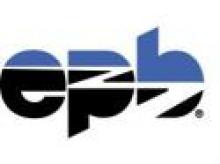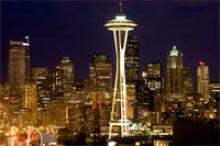Chattanooga Launches Nations Largest Public Full Fiber Network
Prices and Options
All broadband speeds are symmetrical; prices by month
| Option | Price |
|---|---|
| 15 Mbps | $57.99 |
| 20 Mbps | $69.99 |
| 50 Mbps | $174.99 |
| 15 Mbps and basic phone | $68.83 |
| 15 Mbps / basic phone / basic cable | $92.97 |
| 15 Mbps/ phone & 120 min long distance / 77 Channels | $117.24 |
Caveats: an extra $5.99 a month for HD Capability on the TV, but even the basic phone package comes with caller ID and 3-way calling
Chattanooga Launches Nations Largest Public Full Fiber Network
Prices and Options
All broadband speeds are symmetrical; prices by month
| Option | Price |
|---|---|
| 15 Mbps | $57.99 |
| 20 Mbps | $69.99 |
| 50 Mbps | $174.99 |
| 15 Mbps and basic phone | $68.83 |
| 15 Mbps / basic phone / basic cable | $92.97 |
| 15 Mbps/ phone & 120 min long distance / 77 Channels | $117.24 |
Caveats: an extra $5.99 a month for HD Capability on the TV, but even the basic phone package comes with caller ID and 3-way calling
Chattanooga Launches Nations Largest Public Full Fiber Network
Prices and Options
All broadband speeds are symmetrical; prices by month
| Option | Price |
|---|---|
| 15 Mbps | $57.99 |
| 20 Mbps | $69.99 |
| 50 Mbps | $174.99 |
| 15 Mbps and basic phone | $68.83 |
| 15 Mbps / basic phone / basic cable | $92.97 |
| 15 Mbps/ phone & 120 min long distance / 77 Channels | $117.24 |
Caveats: an extra $5.99 a month for HD Capability on the TV, but even the basic phone package comes with caller ID and 3-way calling
Chattanooga Launches Nations Largest Public Full Fiber Network
Prices and Options
All broadband speeds are symmetrical; prices by month
| Option | Price |
|---|---|
| 15 Mbps | $57.99 |
| 20 Mbps | $69.99 |
| 50 Mbps | $174.99 |
| 15 Mbps and basic phone | $68.83 |
| 15 Mbps / basic phone / basic cable | $92.97 |
| 15 Mbps/ phone & 120 min long distance / 77 Channels | $117.24 |
Caveats: an extra $5.99 a month for HD Capability on the TV, but even the basic phone package comes with caller ID and 3-way calling
Chattanooga Launches Nations Largest Public Full Fiber Network
Prices and Options
All broadband speeds are symmetrical; prices by month
| Option | Price |
|---|---|
| 15 Mbps | $57.99 |
| 20 Mbps | $69.99 |
| 50 Mbps | $174.99 |
| 15 Mbps and basic phone | $68.83 |
| 15 Mbps / basic phone / basic cable | $92.97 |
| 15 Mbps/ phone & 120 min long distance / 77 Channels | $117.24 |
Caveats: an extra $5.99 a month for HD Capability on the TV, but even the basic phone package comes with caller ID and 3-way calling
Chattanooga Launches Nations Largest Public Full Fiber Network
Prices and Options
All broadband speeds are symmetrical; prices by month
| Option | Price |
|---|---|
| 15 Mbps | $57.99 |
| 20 Mbps | $69.99 |
| 50 Mbps | $174.99 |
| 15 Mbps and basic phone | $68.83 |
| 15 Mbps / basic phone / basic cable | $92.97 |
| 15 Mbps/ phone & 120 min long distance / 77 Channels | $117.24 |
Caveats: an extra $5.99 a month for HD Capability on the TV, but even the basic phone package comes with caller ID and 3-way calling
Chattanooga Launches Nations Largest Public Full Fiber Network
Prices and Options
All broadband speeds are symmetrical; prices by month
| Option | Price |
|---|---|
| 15 Mbps | $57.99 |
| 20 Mbps | $69.99 |
| 50 Mbps | $174.99 |
| 15 Mbps and basic phone | $68.83 |
| 15 Mbps / basic phone / basic cable | $92.97 |
| 15 Mbps/ phone & 120 min long distance / 77 Channels | $117.24 |
Caveats: an extra $5.99 a month for HD Capability on the TV, but even the basic phone package comes with caller ID and 3-way calling
Seattle Mayoral Candidate Sees Public Fiber as Essential
But is the fact that people can “only” get slow Internet connections enough to float $450 million in bonds, however financed? McGinn says that there are two separate reasons to push for universal availability. “Access to the Internet is access to the economy, access to the community, in some cases access to democracy, access to issues,” he says. But it’s also about the bottom line: “It’s an essential [piece of] infrastructure to compete in a world economy.”Fleishman also notes a concern frequently cited by incumbent carriers who don't want a public network to compete against:
There have been many concerns raised about public entities, especially those with regulatory power over competitors–such as Seattle’s cable franchise board that controls access to public rights of way and facilities–entering the broadband market. But most of those concerns imply that the market will solve the problem. However, with no requirement for building out service to all customers, or having the same level of service available, an efficient market won’t provide universal coverage.In my experience, this is a theoretical fear. Typically, when a community decides to build its own network, the incumbents rush to upgrade their infrastructure (often after denying that they thought there was a need for faster services in the area). If local governments were abusing their authority over the right of way, you can bet there would have been lawsuits filed - these incumbents have sued over everything else. I do not know of a single successful lawsuit against a local government for what would be a violation of law. Getting back to the interview, they discuss both Lafayette, Louisiana:
The reason for the fight wasn’t about the right to 500 channels, about low prices, or about the city wanting a piece of the action.
Seattle Mayoral Candidate Sees Public Fiber as Essential
But is the fact that people can “only” get slow Internet connections enough to float $450 million in bonds, however financed? McGinn says that there are two separate reasons to push for universal availability. “Access to the Internet is access to the economy, access to the community, in some cases access to democracy, access to issues,” he says. But it’s also about the bottom line: “It’s an essential [piece of] infrastructure to compete in a world economy.”Fleishman also notes a concern frequently cited by incumbent carriers who don't want a public network to compete against:
There have been many concerns raised about public entities, especially those with regulatory power over competitors–such as Seattle’s cable franchise board that controls access to public rights of way and facilities–entering the broadband market. But most of those concerns imply that the market will solve the problem. However, with no requirement for building out service to all customers, or having the same level of service available, an efficient market won’t provide universal coverage.In my experience, this is a theoretical fear. Typically, when a community decides to build its own network, the incumbents rush to upgrade their infrastructure (often after denying that they thought there was a need for faster services in the area). If local governments were abusing their authority over the right of way, you can bet there would have been lawsuits filed - these incumbents have sued over everything else. I do not know of a single successful lawsuit against a local government for what would be a violation of law. Getting back to the interview, they discuss both Lafayette, Louisiana:
The reason for the fight wasn’t about the right to 500 channels, about low prices, or about the city wanting a piece of the action.
Seattle Mayoral Candidate Sees Public Fiber as Essential
But is the fact that people can “only” get slow Internet connections enough to float $450 million in bonds, however financed? McGinn says that there are two separate reasons to push for universal availability. “Access to the Internet is access to the economy, access to the community, in some cases access to democracy, access to issues,” he says. But it’s also about the bottom line: “It’s an essential [piece of] infrastructure to compete in a world economy.”Fleishman also notes a concern frequently cited by incumbent carriers who don't want a public network to compete against:
There have been many concerns raised about public entities, especially those with regulatory power over competitors–such as Seattle’s cable franchise board that controls access to public rights of way and facilities–entering the broadband market. But most of those concerns imply that the market will solve the problem. However, with no requirement for building out service to all customers, or having the same level of service available, an efficient market won’t provide universal coverage.In my experience, this is a theoretical fear. Typically, when a community decides to build its own network, the incumbents rush to upgrade their infrastructure (often after denying that they thought there was a need for faster services in the area). If local governments were abusing their authority over the right of way, you can bet there would have been lawsuits filed - these incumbents have sued over everything else. I do not know of a single successful lawsuit against a local government for what would be a violation of law. Getting back to the interview, they discuss both Lafayette, Louisiana:
The reason for the fight wasn’t about the right to 500 channels, about low prices, or about the city wanting a piece of the action.



